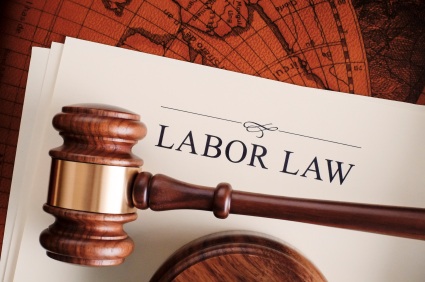It should come as no surprise to most employers that today’s workplace has come to be regarded as the most regulated place in America. It is so because of one simple fact. The federal government, state government, and even local entities, such as cities, can and do issue workplace rules and regulations that require employers to do or not do a myriad of things. Employment-related regulations fill hundreds of pages of legal binders, violations of which can have significant legal consequences. And the list of workplace mandates grows longer each year.
Employers must comply with the numerous provisions of such federal laws as the Fair Labor Standards Act (minimum wage, overtime, and overtime exemptions), Title VII of the Civil Rights Act of 1964 (discrimination or harassment based on several factors), the Americans with Disabilities Act and its amendments (disability discrimination, reasonable accommodation of disabilities), the Family and Medical Leave Act (mandatory leave for certain reasons), Fair Pay Act (equal pay requirements) and numerous other federal mandates. State and local versions of these laws and others may impose even stricter standards. An employer is obligated to comply with all of them, especially if state or local rules are more demanding than the federal regulations.
Supervisors and managers make most of the significant day-to-day workplace decisions regarding employees. Since any one of those decisions could implicate provisions of the multitude of workplace regulations, it is critical that supervisors and managers have at least a basic understanding of what the most significant regulations require. Failure to abide by those rules can result in substantial liability and sometimes seemingly endless litigation. Not only are the federal and state agencies that enforce workplace regulations increasingly aggressive in challenging employer actions, the glut of lawyers looking for a potential plaintiff with a claim increases the likelihood that an agency charge or a lawsuit could result from a routine decision regarding workplace conduct or performance.
For example, in certain circumstances employee conduct that might otherwise warrant discipline, can be considered protected activity under Section 7 of the National Labor Relations Act. The provision that protects “concerted activity” has seen dramatic expansion in its use during the last few years. Conduct such as critical and disparaging remarks about the company, its management, supervisors, and even the use of profanity has been found to be “protected concerted activity.” Even when such conduct is engaged in via social media with its widespread dissemination to others, it has still been found to be protected. Policies that require employees to keep company information confidential, such as salaries or wages, have also been found to violate Section 7.
While most companies provide training on a variety of work-related subjects, such as safety and production matters, few take the time to educate managers and supervisors on the legal consequences that can arise any time they make a decision that is adverse to an employee. Yet such decisions must be made in all workplaces every day.
Basic supervisor training on legal issues should include at least an understanding of the types of conduct that can constitute discrimination or harassment under Title VII. Similarly with the amendments to the ADA in 2009 that greatly expanded the definition of a “disability,” cases of alleged disability discrimination have grown exponentially. Reasonable accommodation of an employee’s disability is mandatory for all employers unless it creates an undue hardship on the company. Complicating the matter is the potential implication of FMLA leave issues anytime a disability involves absence from work.
Understanding what steps must be taken to demonstrate that the company complied with its obligations under both the ADA as well as the FMLA is imperative for everyone who deals with employee issues. Supervisors are generally the first to interact with employees who raise issues that may implicate these complex laws. They stand at the intersection of employment laws and the workplace. If they fail to recognize that specific steps must be taken and what the employer’s obligations are, then liability may be created from the very first interaction with the employee.
Moreover, supervisors and managers can be held personally liable for certain types of claims, so it is important that they receive proper training to help both the company and themselves. In 2016, the Unites States Court of Appeals for the Second Circuit developed a test to determine whether a supervisor was liable for an FMLA claim. The court stated that a manager could be liable depending upon whether they had the ability to hire and fire employees, controlled employee work schedules or other conditions of employment, determined the rate and method of pay, and maintained employment records.
Personal liability also exists for some FLSA claims. Owners and managers that were liable for these claims had the authority to hire and fire employees, determine salaries, the responsibility to maintain employment records, and other control over the day-to-day operations of the business. Basic supervisor training that alerts managers and supervisors to these risks will also reduce the likelihood of a successful lawsuit against employers because management will be motivated to resolve these issues correctly.
How is a supervisor or manager to know what actions may fall under the protection of one or more of the numerous workplace laws unless they are properly trained? This does not mean that they must become human resources experts. A knowledgeable supervisor should be able to recognize and properly respond to at least the more significant potential landmines created by the web of workplace regulations. In today’s litigious environment, it is imperative that appropriate legal issues training be included in every employer’s preventative maintenance regimen. Failure to do so could result in liability and costly court entanglements.
—-
Richard D. Alaniz is a senior partner at Alaniz Schraeder Linker Farris Mayes, L.L.P., a national labor and employment firm based in Houston. He has been at the forefront of labor and employment law for over thirty years, including stints with the U.S. Department of Labor and the National Labor Relations Board. Rick is a prolific writer on labor and employment law and conducts frequent seminars to client companies and trade associations across the country. Questions about this article, or requests to subscribe to receive Rick’s monthly articles, can be addressed to Rick at (281) 833-2200 or ralaniz@alaniz-schraeder.com.
Thanks for reading CPA Practice Advisor!
Subscribe Already registered? Log In
Need more information? Read the FAQs





